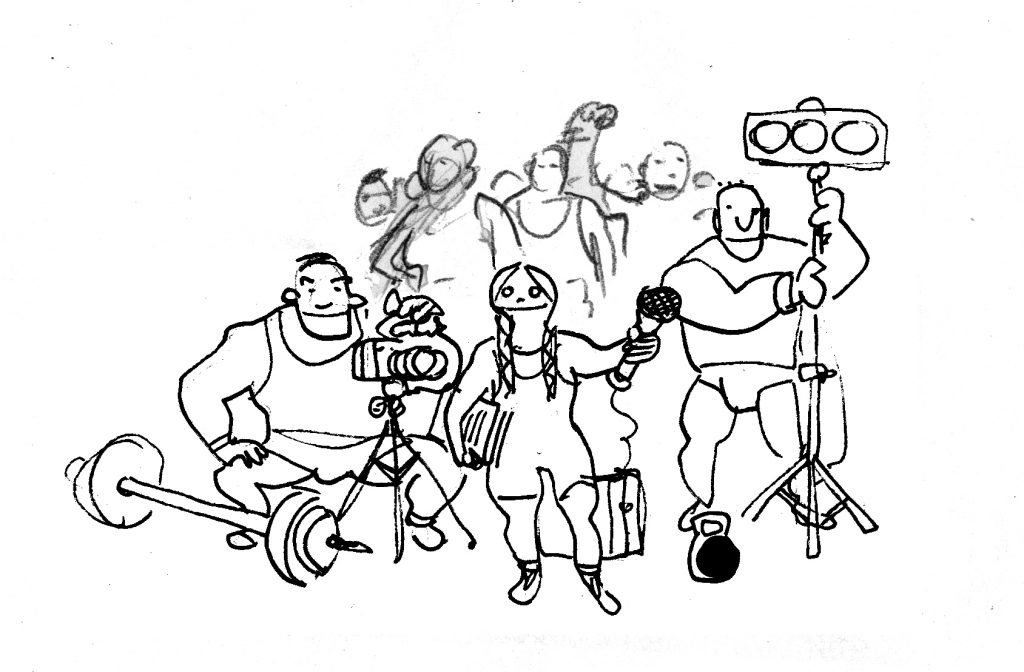We finally got tired of knocking on government agencies’ doors offering the project. It has obvious public interest, but let’s face it: we’re days from one of the most obscene events in Brazilian sports History, the World Cup in Brazil. Apart from the fact that there is ample technical and scientific evidence as to the detrimental effects of mega-sports events on the host country’s economy and sports development, the World Cup was just an electoral act from a populist government.
After that we would face the same closed doors because of the other mega-sports-events, including the Olympic games, which we do hope will be transferred from Rio to somewhere else – we don’t care.
Our tiny Oral History project was faced with a “pfff…”.
So we decided to do it ourselves: we needed a good camera, a couple of decent external hard drives and a lot of will. The plan was simple: we would select the most relevant characters in the History of Strength Sports in the country, interview them and keep the result as a historical document to be filed with the Museum of Image and Sound and posted on Youtube.
We started with Eugenio Koprowski, undoubtedly the most important person in the History we are starting to create a media library for. Eugenio is 65 years old now and his gym, “Espartaco”, is the oldest gym in São Paulo. He was the founding father of all 5 strength sports in the country, each of which he let go to seek its own destiny.
For us – Eduardo and myself – it has been a fascinating experience. One of those life-changing events. I think the relatively small impact the video had was somewhat disappointing to me. However, as my brother pointed out, the importance of these recordings will only be recognized years from now, when actual historical research about the origins of our strength sports starts to be pursued in academic environments.
We have a list of people to interview. Some of them are elderly men and we don’t have all the time in the world to collect their memories. It might be a little blunt to put it this way, but people die and the probability of death increases with age. Of the physicians and researchers I interviewed for the Oral History projects I carried out as principal investigator at the University of São Paulo, most are dead.
I am not really sure how long I will stay in Brazil, but it has to be enough to accomplish at least the first part of this project.
We have named it “We – by ourselves”, meaning we, the athletes, the sports community, interviewed and shown by a team of our own.
I have solid training in oral history and in-depth interview methodology, as well as other qualitative research methods. Above all, however, I am a powerlifter.

